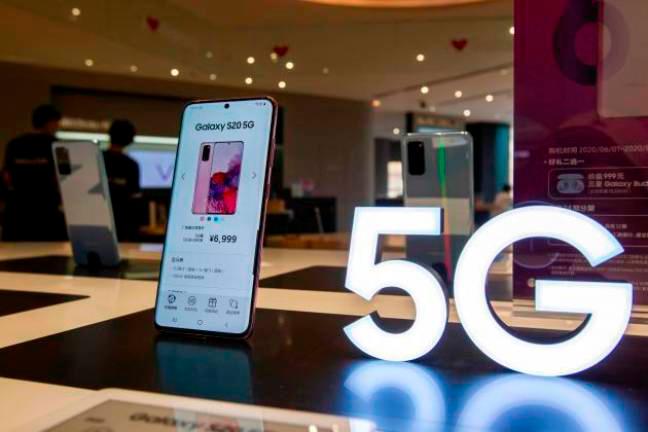PETALING JAYA: Cliche as it sounds, the digital transformation that will lead to high speed internet has certainly sped up.
On the other hand, industry experts and stakeholders believe a nationwide rollout of 5G technology is some way away.
Covid-19 is here to stay, probably for the long term if not permanently, and practically every everyday function – from learning to working – has gone online at an unprecedented pace. The need for 5G has never been more urgent.
Unfortunately, 5G in Malaysia is still in its infancy despite tests already being conducted by Putrajaya and Cyberjaya, according to consulting firm LGMS Group chief executive officer Fong Choong-Fook.
“Don’t expect it anytime soon,” Fong told theSun.
“One obstacle is the high cost of equipment and deployment.”
He agreed that the Covid-19 pandemic has, without a doubt, helped to speed up the digital transformation in Malaysia.
However, it is the user rather than the technology, that is transforming.
“For instance, people are adapting very quickly to e-meetings and e-conferences to conduct business,” he said.
He described the local infrastructure as “not complete and unbalanced” since states such as Sabah and Sarawak still have to deal with a lack of fundamental connectivity.
He cited the case of 18-year-old Sabahan Veveonah Mosibin, who made headlines earlier this year for having to sit for her exams on a treetop because internet access in her rural home was limited.
However, Fong acknowledged that bringing 5G to remote areas is a totally different challenge.
He said this is because the 5G wavelength is for short distances only, so it is better for areas with a high population density but impractical for large but thinly populated regions.
“For such areas, 3G and 4G are perhaps more suitable. The government should look instead into ensuring stable connections in remote areas instead of trying to provide 5G there,” he said.
With the advent of 5G, subscribers will require newer and smarter technology but they are also costly, and may be beyond the reach of many.
“When 5G is deployed eventually, subscribers will surely have to pay more for the service,” Fong added.
Compared with its Southeast Asian neighbours, he said the cost of broadband is “unreasonably high” in Malaysia.
“If the government wants to create much broader internet coverage, the cost of infrastructure must be lowered and benchmarked against countries like Singapore.”
The Internet Society (Malaysia Chapter), a non-governmental organisation interested in the promotion and enhancement of internet use, believes that Malaysians will only experience 5G in 2022, as stated under the Jendela Plan launched by the government last August.
Its president Suwannit Chareen Chit said the government will prioritise the upgrading of broadband and 4G to cover up to 97% of populated areas, while shutting down 3G networks at the same time.
“We, as consumers, dream about fast but cheap internet access. However, before we dive into 5G, we need to realise and address the fact that the digital divide in Malaysia involves communities that do not have the ability to afford devices with the latest technology,” he added.
Suwannit also believes that it is better to ensure a low-band spectrum is available so there is no necessity to build more sites to improve coverage.
“This will benefit the semi-urban and rural communities and have a direct impact on digital adoption by those with small purchasing power.”














